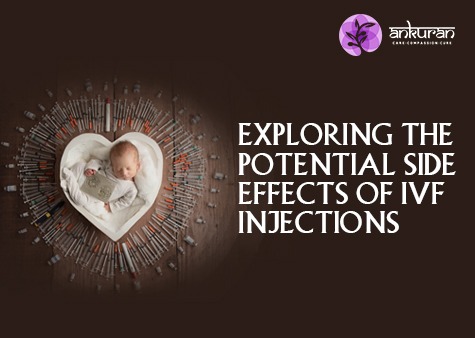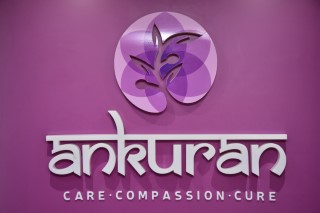In Vitro Fertilization (IVF), a service offered by many facilities including the IVF clinic in Kolkata, is a significant medical advancement in reproductive health. Its importance lies in its ability to help individuals and couples overcome various fertility issues. The side effects of IVF treatments, however, can occur just like with any other medical procedure. This article aims to explore these side effects, while also providing valuable information on their prevention, treatment options, and solutions.
Understanding IVF Injections: A Closer Look at IVF Side Effects
IVF injections play a crucial role in IVF treatment in Kolkata and around the world. They are used to stimulate the ovaries to produce multiple eggs, increasing the chances of successful fertilization. The injections typically contain hormones like Follicle Stimulating Hormone (FSH) and Luteinizing Hormone (LH), which are naturally produced by the body. However, the increased levels of these hormones can lead to side effects of IVF injections, which we will explore in the following sections.
Unveiling IVF Side Effects
As we delve into the journey of IVF, it’s important to understand the potential side effects. These IVF side effects, long-term and short-term, can vary from person to person:
Ovarian Hyperstimulation Syndrome (OHSS)
This happens when the ovaries respond too well to the fertility drugs and produce too many eggs. Symptoms can range from mild bloating and discomfort to severe pain and swelling of the abdomen.
Ectopic Pregnancy
This is when a fertilized egg implants outside the uterus, usually in a fallopian tube. It’s a medical emergency as the growing embryo can cause the tube to burst.
Physical Discomfort at The Injection Site
This can include redness, swelling, or bruising where the injection was given. It’s generally not severe and tends to subside without intervention.
Mood Swings
The hormones used in IVF can cause mood swings, similar to those experienced during a menstrual cycle. This can include feelings of anxiety, irritability, or depression.
Hot Flashes
These are unexpected, strong sensations of heat, typically felt most strongly across the chest, neck, and face. They can also cause sweating and a rapid heartbeat.
Electrolyte Disturbances
These can occur due to severe OHSS. Electrolytes are minerals in your body that have an electric charge, like sodium and potassium. They are crucial for many bodily functions, including heart and muscle function.
Allergic Reactions
In rare cases, some people may have an allergic reaction to the hormones used in IVF injections. Hives, shortness of breath, and inflammation of the mouth, lips, tongue, and throat are some of the symptoms that may be experienced.
Nausea and Vomiting
These are common side effects of the hormones used in IVF. They are usually mild and can be managed with medications suggested by your doctor.
Twisting of an Ovary (Ovarian Torsion)
This is when an ovary twists around the ligaments that hold it in place. It can cause a lot of pain and therefore you need to seek medical attention right away.
Breast Tenderness
This is due to the increased levels of certain hormones in the body. It’s similar to the breast tenderness some women experience before their period.
While these IVF medication side effects may seem daunting, it’s important to remember that they are not guaranteed to occur and there are preventative measures and treatments available. The goal is to be informed and prepared, not scared.
Mitigating IVF Side Effects: Prevention Strategies
During IVF treatment, it’s crucial to take steps to minimize potential side effects. Here are some strategies:
- Stay Hydrated: Drinking plenty of fluids can help manage some of the side effects of IVF, such as bloating and constipation.
- Rotate Injection Sites: To minimize discomfort at the injection site, it’s recommended to rotate the areas where injections are given. This can help prevent bruising and swelling.
- Regular Monitoring: Regular check-ups with your healthcare provider can help prevent serious conditions like OHSS. They can adjust your treatment plan based on your body’s response to the hormones.
By following these strategies, you can manage the side effects during the treatment and prevent potential IVF side effects in the future. Remember, every individual’s experience with IVF is unique, and what works for one person may not work for another. Talk to your healthcare provider first for individualized assistance.
Addressing Side Effects of IVF Injections: Treatment Options
Experiencing side effects of IVF treatments is not uncommon. Here are some treatment options:
- Products for Injection Site Reactions: Mild IVF shots side effects like redness or swelling at the injection site can often be managed with anti-inflammation creams or cold compresses as prescribed by your medical professional.
- Communication About Emotional Changes: If you’re experiencing mood swings or emotional distress, it’s important to communicate these changes to your healthcare provider. They can provide resources or refer you to a psychologist or counsellor.
- Medical Intervention for Severe OHSS: Severe Ovarian Hyperstimulation Syndrome (OHSS) is a serious condition that requires immediate medical intervention. Treatment may include medication adjustments or, in rare cases, hospitalisation.
FAQ
Here are some frequently asked questions about IVF side effects and the IVF process. Let us explore:
What are the negative side effects of IVF?
Negative IVF side effects can include physical discomfort at the injection site, mood swings, hot flashes, and more serious conditions like Ovarian Hyperstimulation Syndrome (OHSS) and ectopic pregnancy.
Is IVF pregnancy safe?
Yes, IVF pregnancy is considered safe. However, like any medical procedure, it carries some inherent risks such as allergic reactions, OHSS, ectopic pregnancies, etc. Nevertheless, these conditions can be treated and prevented through proper treatment plans.
Is bed rest required for IVF pregnancy?
Bed rest is not universally required after IVF. Some doctors recommend it, while others suggest returning to normal activities within a day or two.
What is the most difficult part of IVF?
The most difficult part of IVF varies for each individual. Some find the waiting period between embryo transfer and pregnancy test to be the hardest.
Conclusion
Understanding IVF’s side effects is crucial for anyone undergoing IVF treatment. Open communication with healthcare providers about any concerns is key. Ankuran Clinic, one of the top 5 IVF centres in Kolkata, offers safe IVF treatments with experienced Fertility Specialist and the latest technology. Despite potential side effects, the success of IVF treatment is a testament to medical advancements. Do not forget that you are getting closer to your dream with each action you take.



No Comments